The content of the article
Allergic cough is paroxysmal and dry. It is accompanied by itching in the throat and nose. Sometimes transparent sputum is released, in which there are no purulent inclusions. Symptoms of an allergic cough in a child worsen in the evening and closer to night. Some seizures begin suddenly and last 1–2 hours. Only antihistamines can stop them. An allergic cough can turn into bronchitis or asthma if its cause is not timely eliminated.
Home diagnostics
Treatment of any disease begins with a diagnosis. Allergic cough can provoke:
- dust and mites living in down pillows;
- pet hair or saliva;
- feathers of birds;
- household chemicals;
- cosmetics;
- pollen of indoor and wild plants;
- Food.
Mom, to determine the cause of pharyngitis, starts a diary of a child. She writes in it what plants the baby contacted during the walk, what he ate, what he played and washed his hands. The diary should indicate the composition of dishes, as well as the brand of powder, baby shower gel and other detergents. If cats or dogs live in the house, the mother records the time when the child was in contact with the animal, and then the baby’s reaction to the coat.
The most common food allergens that you need to pay attention to include:
- citruses;
- honey;
- smoked meats;
- canned food;
- sausages;
- mushrooms;
- eggs
- exotic vegetables.
If you could not determine the cause of the cough yourself, the child is shown to the pediatrician and allergist. Specialists give directions to biochemical and general blood tests, x-rays of the lungs and bronchi. Children from 3 years old are given skin tests: several common allergens are applied to the forearm and the reaction is monitored. After identifying the cause, the doctor selects antihistamines that remove the cough and other symptoms.
Cleanliness and fresh air
Sometimes specialists cannot find the source of the allergy. In such cases, it is recommended to donate blood and feces to the worms. Some varieties of parasites penetrate the lungs and bronchi, causing a dry spasmodic cough.
The house where the allergic child lives should be clean. Parents daily wipe dust, wash floors, regularly clean upholstered furniture and discard carpets. Down pillows and blankets are replaced with synthetic filler options. No dirt, dust, sweat and mites accumulate in polyester and eco-fiber. For children, pillows filled with buckwheat husk are also suitable.
An ordinary soft toy can provoke an allergy. The child is bought by plastic cars, dolls and dishes, designers and various board games. But no teddy bears, bunnies and other animals.
Parents are not allowed to smoke in the house and even on the balcony. Smoke and the smell of tobacco that remains on clothes and seeps into rooms can cause cramping in the bronchi and an allergic dry cough.
Pets are regularly bathed, vaccinated and treated for fleas and worms. A child can normally perceive a cat's hair and saliva, but a dirty animal is a source of ticks, helminths and infections that weaken the immune system and make it susceptible to allergens.
Children who have a dry spasmodic cough should not walk near highways. Exhaust fumes and dust irritate the nasopharynx and cause soreness. In winter and autumn, you can walk into the park and breathe fresh air. In spring and summer, during the period of active flowering, it is worth avoiding alleys planted with shrubs, trees and ornamental plants.
Cough diet
With an exacerbation of an allergic cough, all dangerous products are removed from the child’s diet:
- orange vegetables and fruit;
- almonds, hazelnuts, walnuts and peanuts;
- natural cow's milk;
- mayonnaise, mustard and ketchup;
- smoked meats and sausages;
- beekeeping products;
- chocolate and sweet muffin;
- mushrooms;
- sea fish;
- products containing preservatives.
The duck and goose are contraindicated in case of allergy symptoms. With caution, the baby is given chicken and turkey breast. Poultry is replaced with beef or rabbit. Instead of cow's milk, goat is given, but in small quantities.
Allowed green vegetables: zucchini, broccoli, cucumbers, cabbage, eggplant, and cereals. Useful cottage cheese, prunes, bananas and brown bread. You can green apples and boiled potatoes.
Prohibited foods are introduced into the children's diet after a successful cough treatment. First, give 30 g of mashed potatoes from pumpkin or red apples, then increase the portion if the body normally responds to new components.
Products causing an allergic cough are left on the menu. But they give the child literally 10-15 g of strawberries, mushrooms or milk. Gradually, the body gets used to the component and stops producing antibodies.
Cough medicine
Quickly stop the coughing attack helps injection "Suprastin." The medicine is released in the form of tablets, but they act after 20 minutes. An injection removes the symptoms of allergies in 5-10 minutes.
Antihistamines are prescribed for children from a month old. Breasts are prescribed Fenistil or Suprastin. Patients from 6 months old are given drops of “Ketotifen” and “Zirtek”. Children who are 1 year old are prescribed “Zodak” in liquid form and “Erius”.
Syrup "Cetrin" is prescribed from two years, and tablets "Ketotifen" - from three. With an allergic cough, children are given Diazolin, Loratadin and Tavegil.
Between doses of antihistamines, it is recommended to cleanse the body with sorbents. “Polysorb”, activated carbon, “Enterosgel” and “Polyphepan” are suitable. Funds relieve coughing attacks, reducing the concentration of allergens in the blood.
Pharmaceutical sorbents are supplemented with the seeds or oil of milk thistle. The plant cleanses the body of toxins and allergens, soothes perspiration in the throat and bronchi, has wound healing and hepatoprotective properties. Dried seeds are ground into powder and give the child 5 g of the drug twice a day. In a similar way, milk thistle oil is used. It is impossible to abuse the plant, otherwise the allergic cough will not disappear, but intensify.
Irritation and perspiration in the larynx is removed by "Glycodinum". The syrup softens the mucous membrane of the throat and bronchi, facilitates bouts of dry cough. Children under 7 years old are given 5 ml of the drug 4 times a day. With an allergy in a student, the portion is increased to half a teaspoon.
Cough arising from plant pollen or dust is stopped with Levokabastin, Cromohexal or Allergodil sprays. Drugs are prescribed from 6 years. The medicine is injected into the nasal passages. It removes swelling, inflammation and perspiration. Washes particles of pollen and dust.
An allergic cough is treated with antihistamines, tablets and sprays. But with a complication of the disease, corticosteroids can be prescribed. Hormone therapy restores the functioning of the bronchi and lungs, protects against asthma.
Immunotherapy
Children from 3-4 years old are given specific immunotherapy. Doctors determine the allergen, and then inject it into the body by injection or oral route. The method makes the body get used to the product that causes coughing, runny nose and swelling.
The method is recommended if an allergy in a child occurs due to:
- household chemicals;
- pet hair, saliva, and dandruff;
- mold and fungi living on the walls of the apartment;
- dairy products;
- citrus fruits;
- pollen of ragweed and other plants;
- dust.
Immunotherapy is an expensive and lengthy procedure. Sometimes the course of treatment is delayed for 3-5 years.But the child gets rid not only of cough, rhinitis, conjunctivitis and other symptoms, but also of allergies. The body gradually gets used to citruses or pollen and begins to perceive them neutrally.
The treatment takes place at home. The doctor selects drugs and doses. The first procedure is carried out in the hospital to monitor the reaction of the child's body to the allergen, and then they are allowed to take the medicine on their own.
Inhalation
Dry cough eases nebulizer. The device is intended for inhalation for colds, bronchitis, tracheitis and pharyngitis. The nebulizer is filled with mineral water or saline. The device turns liquid into steam, which cleans the airways of allergens and moisturizes the mucous membrane, removing perspiration.
Mineral water is replaced with special preparations designed to stabilize the mast cell membrane. Children from 6 months of age are prescribed the hormone Pulmicort. The medicine prevents cramping in the bronchi, removes inflammation and swelling of the respiratory tract. The drug "Pulmicort" is diluted with saline. The dosage is selected depending on the age of the child and the neglect of the disease.
Berodual is prescribed for patients with a dry allergic cough and too viscous sputum. The drug expands the lumen of the bronchi, facilitating breathing, and reduces cramping. Berodual, like Pulmicort, is mixed with saline.
Allergic pharyngitis is treated with Eufillin and Ventolin. The drugs relax the smooth muscles of the bronchi, expanding their lumen. They moisturize the mucous membrane, thin out sputum and gradually reduce the frequency and duration of coughing attacks.
Cramps in the bronchi and lungs removes "Berotek." A one percent solution is poured into the nebulizer, which is prepared from 10 drops of the drug and 1 liter of liquid. Steam inhalations are carried out 4 times a day. The procedure can be combined with antihistamines and a special diet that will accelerate the recovery of the child.
Massage and breathing exercises
With frequent and prolonged coughing fits, parents are advised to perform finger massage. The child lies belly on a bed or sofa, hanging his chest down. Mom holds the baby’s legs with one hand, and taps on the back in the area of the bronchi and lungs with the other. Fingers move quickly, but accurately. Gently “run” along the chest of the child, kneading it and removing spasms. Massage dilutes sputum and facilitates expectoration, relaxes smooth muscles of the respiratory system.
Children from 5-6 years old are recommended to do special exercises for allergic cough. Mom can work with her baby. Breathing exercises develop the muscles of the chest and bronchi, protect against asthma and calm the nerves.
The technique is simple:
- Mom and baby sit on the mat or just on the floor, close their eyes and listen to their own breathing. They feel how the lungs are filled with air and push it out.
- They take a long breath. Gather air through the nose until there is no free space in the lungs. You need to use both the chest and the stomach. Then they exhale sharply and quickly through the mouth. Repeat 3-4 times.
- Then mother and child take three short breaths, gradually filling the lungs with oxygen. At the expense of "4" all carbon dioxide exhale sharply. Three repetitions are enough.
- Mom and baby mentally count from 1 to 4 and at this time take one continuous breath. Air is gained slowly, working only with the nose. They represent that the oxygen lowers to the lungs, and then flows into the navel. They hold their breath, counting to eight. If the baby does not succeed, you can reduce it to 6 or 4, and then gradually increase the figure. The air is exhaled eight times in short jerks.
Gymnastics can be combined with moderate physical activity. Suitable for swimming, rollerblading or cycling. Skates and skis are contraindicated.The child should drink 150-200 ml of mineral or distilled water before exercise. The liquid prevents the accumulation of mucus in the lungs and protects against coughing attacks.
Folk methods
Allergic pharyngitis caused by dust or animal hair is treated with a decoction of bay leaves:
- 20 g of spice are boiled in 500 ml. The drink is brought to a boil, and after 5 minutes, remove.
- 25 g of baking soda is added to the filtered medicine.
- The medicine is seasoned with 30 ml of linden honey.
The child drinks 50-60 ml of the drug daily until the attacks stop.
With an allergic cough, it is advised to strengthen the immune system with a lemon-honey drink:
- Medium-sized citrus is washed, poured with boiling water and passed through a meat grinder without peeling.
- For 100 g of lemon gruel you will need a glass of linden honey.
- The products are mixed and diluted with 400 ml of distilled water.
- The drink is placed in a water bath and heated to 40-50 degrees.
Heat-treated medicine is cooled to room temperature and divided into 3-4 portions. The child drinks the remedy per day, it is possible both before and after food.
Important: Lemon-honey drink should not be brought to a boil. At a temperature of +60 degrees and above, vitamins evaporate, and the medicine loses its beneficial properties.
Viscous sputum with an allergic cough is diluted with camphor oil. The product is heated to 37–39 degrees and rubbed into the chest. Mustard plasters are applied to the right side, wrapped with cling film and a dense scarf on top. A camphor compress is held for 20-30 minutes.
Allergic cough in children is treated with folk and pharmacy, nebulizer and diet. For the prevention of pharyngitis, it is advised to perform breathing exercises, swim a lot, maintain cleanliness in the house and strengthen the child's immunity by walking in the fresh air and vitamin complexes.
Video: how to distinguish an allergic cough from an infectious

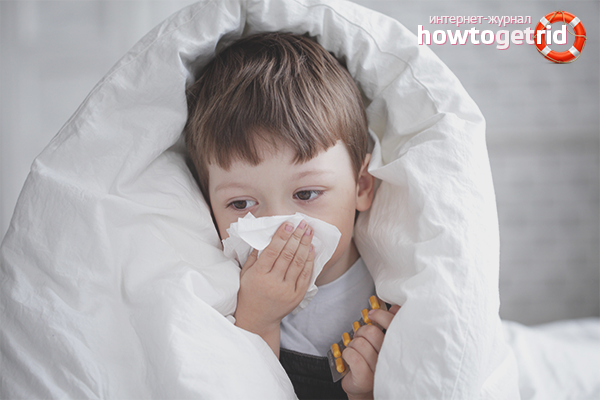
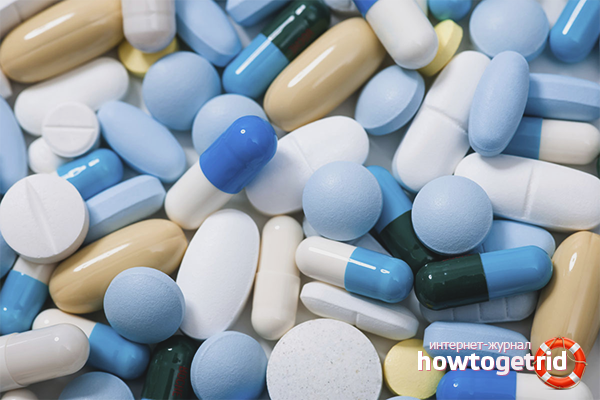
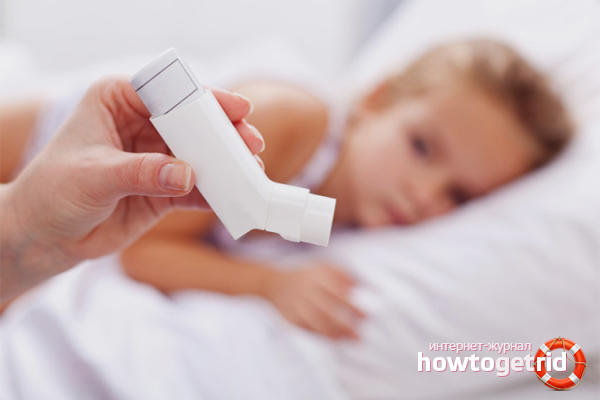
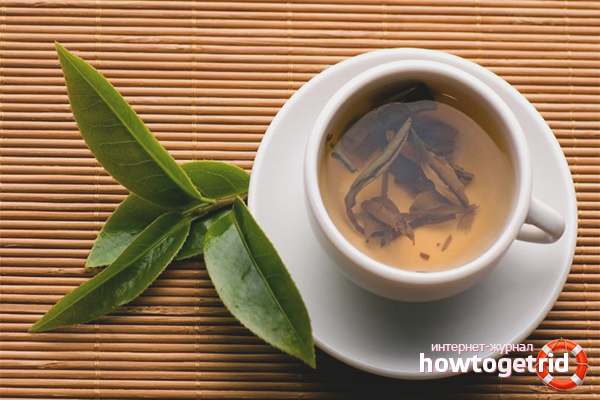
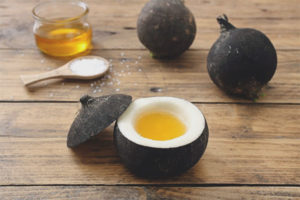
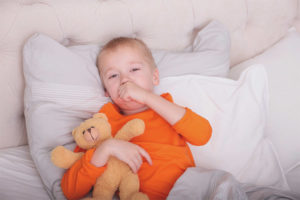
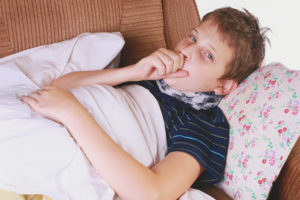
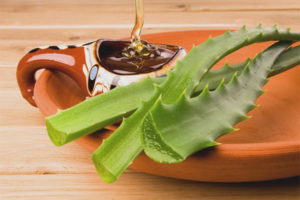
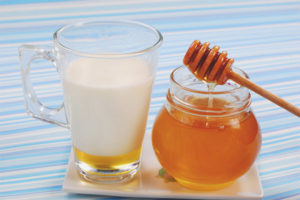

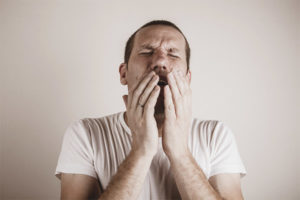
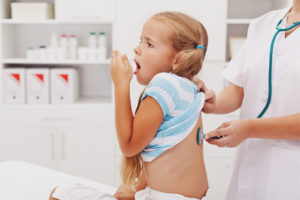
Submit